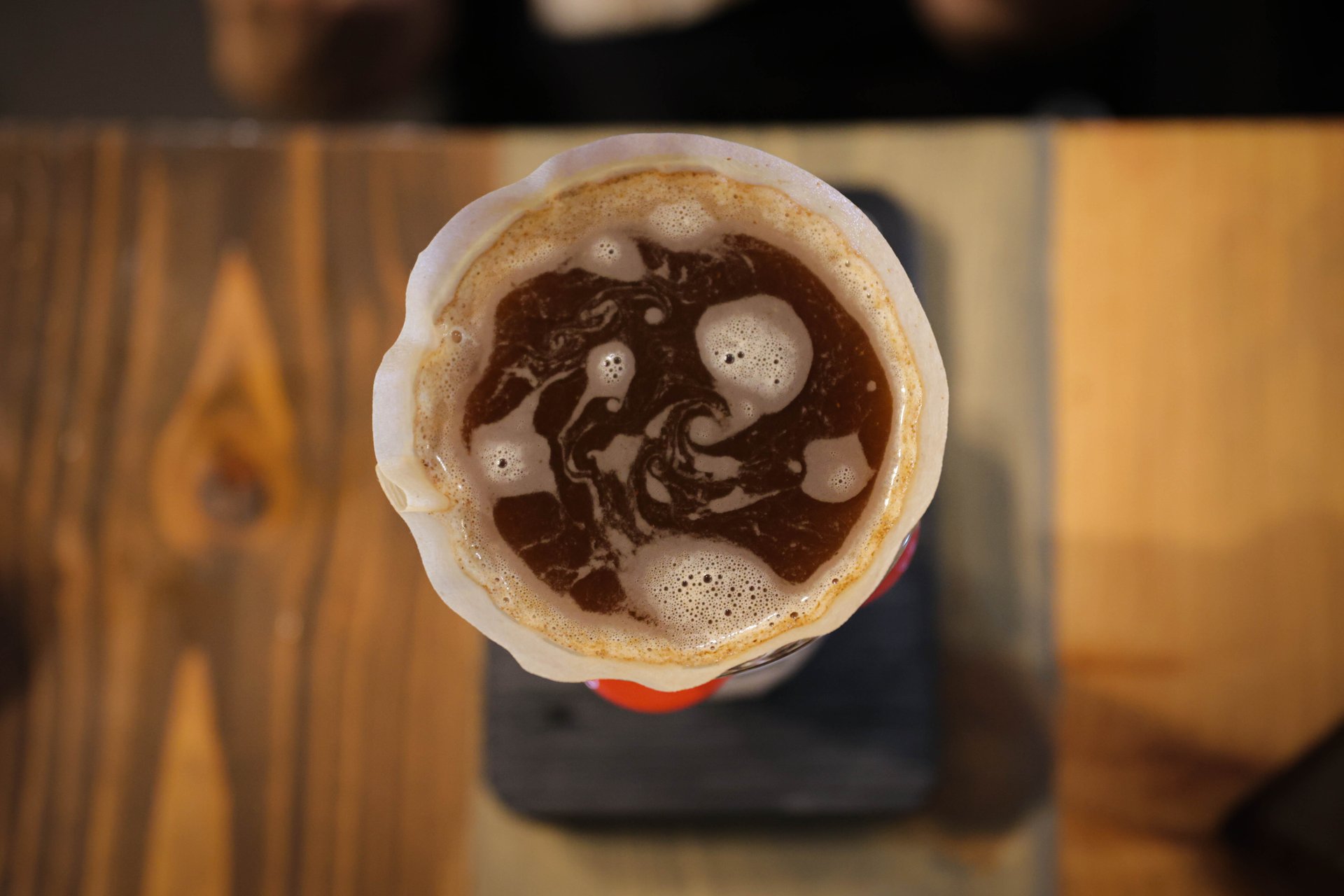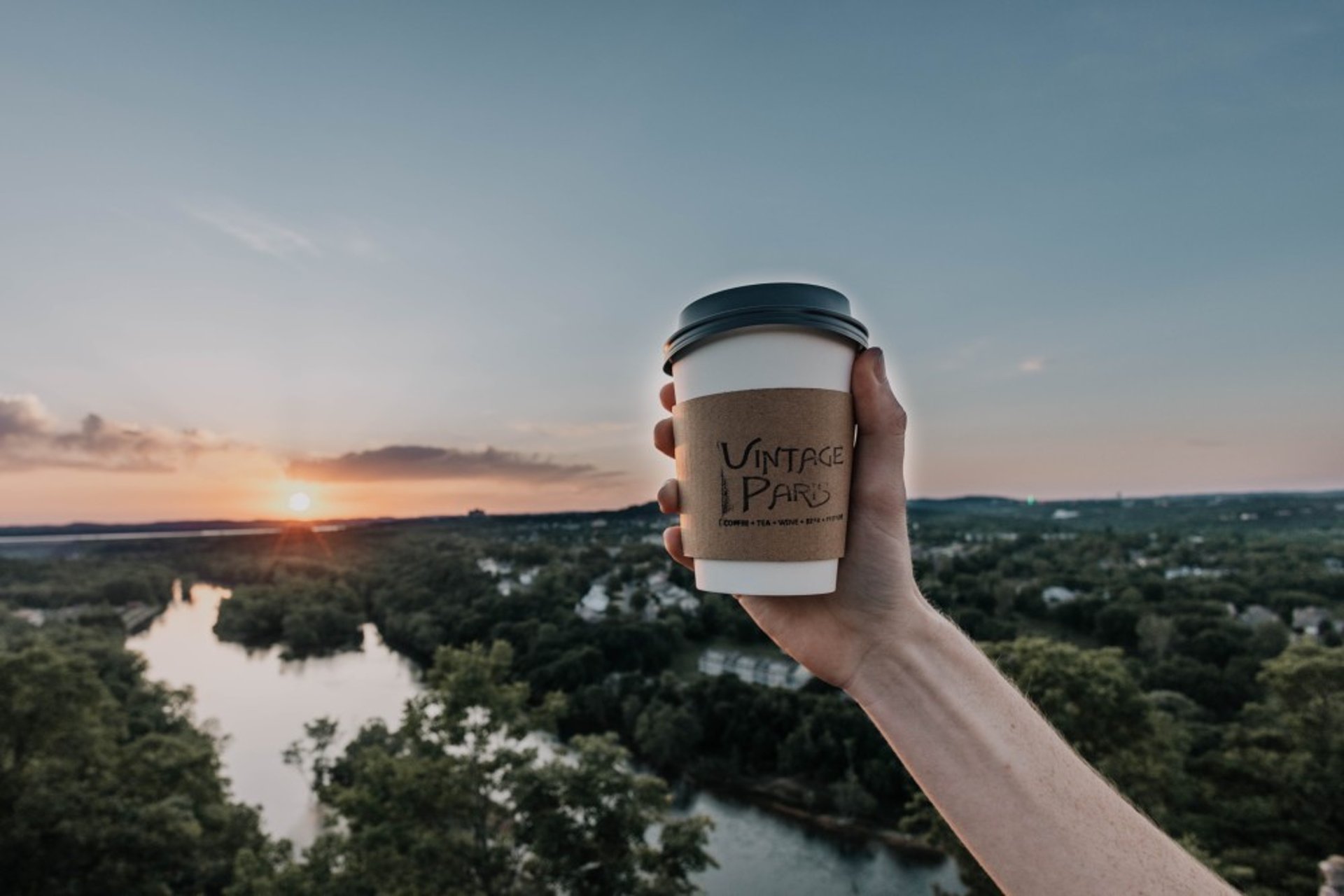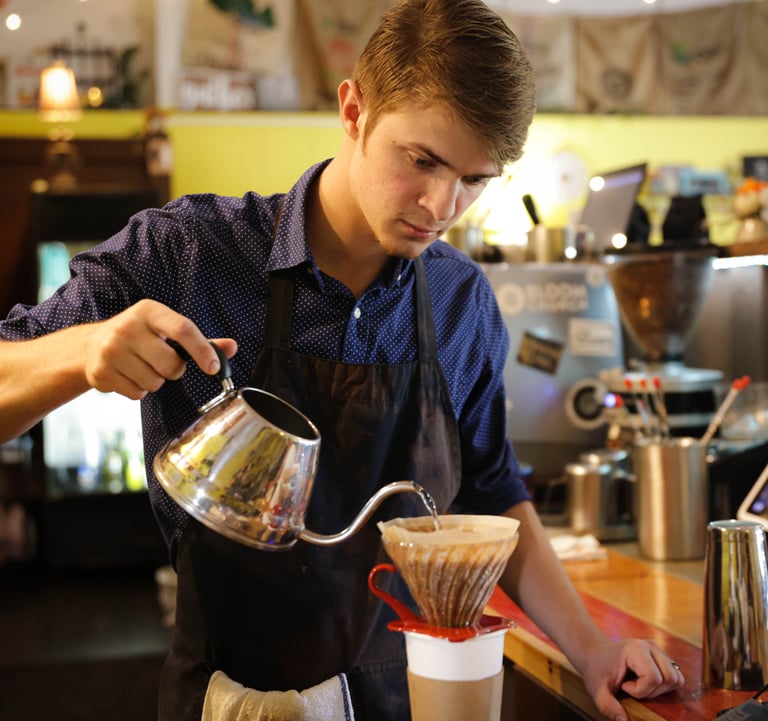
Coffee at Home: Best Practices
A brief guide on brewing coffee at home

Want to brew better coffee at home like you get at Vintage Paris? Here are some tips and recommendations to get you started on your own specialty coffee journey. In this short blog, I describe choices for coffee, water, methods, and tools you'll need to get started. Let's go!
Coffee
Quality coffee is important to brewing great coffee at home. Typically, coffee purchased at a supermarket is aged, lower quality, or is pre-ground (more on that under methods). Quality coffee can be sourced from some health food stores, local coffee shops and roasteries, and online. Roast magazine publishes "Roaster of the Year" awards for high quality coffee roasters that would be a good place to start if you're unsure. Also, you can head to your favorite coffee shop and ask them for some recommendations.
One metaphor I use to describe quality coffee to others is beef. Beef is available at fast food burger places and at a high-end steak restaurants. The quality of the beef and preparation is what separates the two. High quality beef is prepared differently. Typically it is not cooked to well done and requires minimal seasoning for flavor. Transitioning from lower quality coffee to higher quality coffee can be the same for some people. If you typically put sweetened flavored creamer in your coffee, that would be equivalent to loading up a fast food burger with topping and sauces. But if you switch to a filet mignon, you would avoid all the extra topping and sauces to savor the higher quality beef.
The best coffee maintains the sweet, complex, and fruity characteristics of the coffee fruit the bean comes from. Most people don't need any creamer or sweetener to enjoy quality coffee. Typically, it is lightly roasted and not oily.
As a food product, it is also important to ensure the beans are fresh. There is debate on the shelf life of coffee, but as a general rule, consider coffee "not-fresh" after 30 days of a roast date in whole bean form.
Water
Sometimes overlooked, water is a important aspect of brewing at home because water makes up the majority of the coffee we drink. In general, tap water is not the best due to water treatment such as chlorine and total dissolved solids (TDS) which impacts the flavor. Additionally, tap water can cause scale to build up quickly in your equipment. It is possible to get hyper-fixated on water chemistry and start mixing your own brews. For the average home-brewer, this may be too much. For better-than-tap brewing water, buy jugs of filtered drinking water from a store or buy distilled water and add Third Wave Water Packets to create a consistent formulation of brewing water. Do NOT use distilled water to make coffee. This will damage your equipment and not extract the coffee well.
Methods
The #1 recommendation for great home brewing is a good grinder. A great espresso or brewed coffee can easily be made on cheap equipment if the grinder is high quality. Blade grinders grind too inconsistently and do not produce consistent brews. One of the most affordable grinders we've used is the Capresso Infinity (not an affiliate link, we just love it). The best grinders have conical or flat burrs that efficiently and effectively grind the coffee into the size we need for brewing. The substances that preserve coffee are locked inside the coffee bean in whole bean form. Once ground, gases and aromatic/volatile compounds are immediately released into the air. It is important to grind as needed immediately before brewing.
For brewing techniques, there are a lot of them! Professional baristas like James Hoffman have really informative videos that can get you started.
Tools
In its simplest form, you don't need many tools to make great coffee. I've made some amazing cups on camping trips with minimal tools (I brought a good grinder, water boiled over a campfire, and fresh coffee - brewed in a cheap plastic pour over brewer and eyeballed the amount of coffee to use). Focus on the water, the grinder, and learn a bit about the different methods described above and you'll already be making amazing coffee at home. To take the next step, purchase a gram-capable scale, hand-brewers like Hario v60, a gooseneck kettle, and dive deeper into the world of specialty coffee with coffee experts like Scott Rao, Jonathan Gange, James Hoffman, and Barista Hustle. Take one extra step and start roasting your own with some help from Sweet Marias.
I hope this is a helpful overview of the things you'll need to start making great coffee at home. For more information feel free to contact matt@vintagepariscoffee.com and head over to education page for some free brewing guides for V60 pour overs and espresso.
Cheers!
Matt





